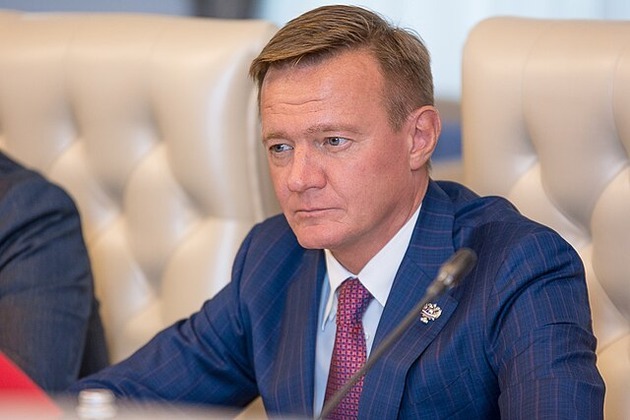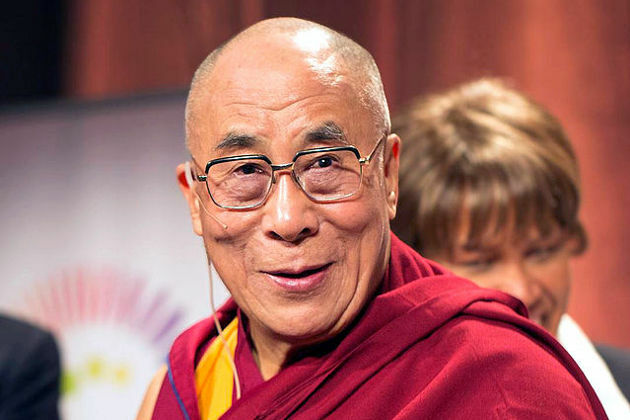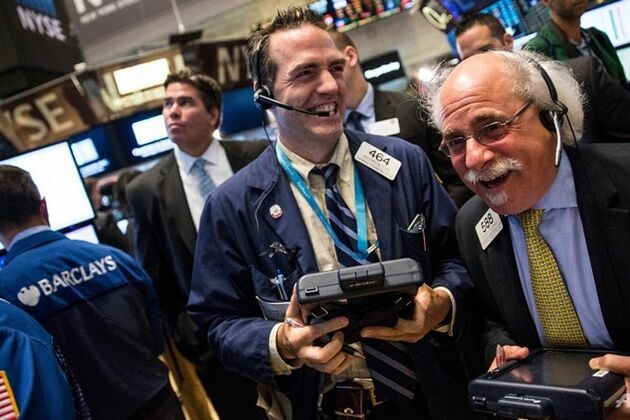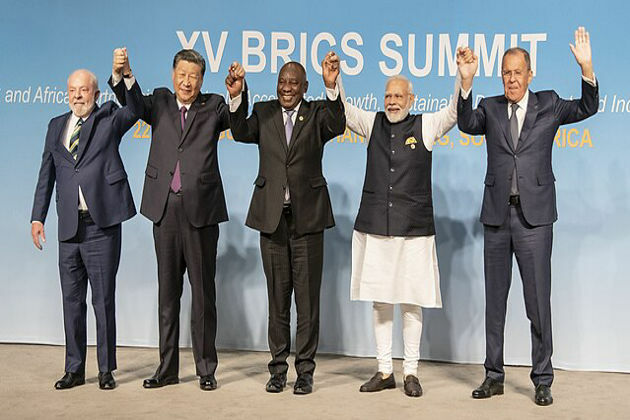India is conscious of perils of entering into free trade agreements
ANI
21 Nov 2020, 10:48 GMT+10
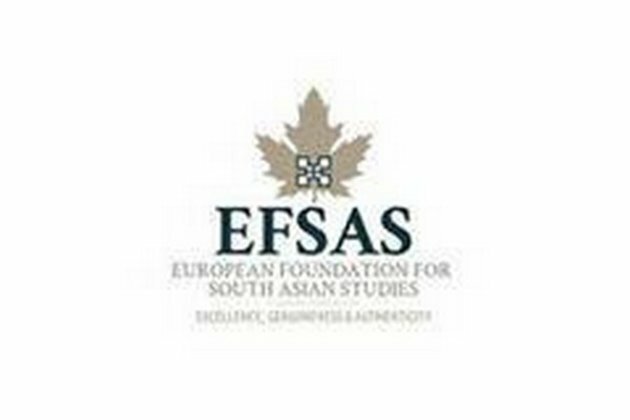
Amsterdam [Netherlands], November 21 (ANI): Through its decision to stay out of the Regional Comprehensive Economic Partnership (RCEP), India has demonstrated that it is "conscious of the perils" of entering into free trade agreements that would merely provide its vast market for countries such as China to exploit, a European think tank has said.
In a commentary, European Foundation for South Asian Studies (EFSAS), has said the Indian government fittingly chose sensitivity towards the large and vulnerable sections of its population that would, at least in the immediate term, be severely adversely impacted by its signing the RCEP.
India on November 15 opted out of the trade deal, which was signed by 15 Asia-Pacific nations, including China.
India decided not to join the RCEP agreement last November itself as its key concerns were not addressed.
The key reasons behind New Delhi's decision to remain out of the world's biggest trade agreement include inadequate protection against import surge, insufficient differential with China, possible circumvention of rules of origin, keeping the base year as 2014 and no credible assurances on market access and non-tariff barriers.
On Wednesday, External Affairs Minister S Jaishankar had said that India chose to opt out of the RCEP as a number of key concerns were not addressed.
"We had to take a call then whether to enter a trade agreement if our major concerns are not addressed," the external affairs minister said on RCEP during a virtual discussion at the Centre for European Policy Studies.
The EFSAS has said in the final analysis, the Indian government fittingly chose sensitivity towards the large and vulnerable sections of its population that would, at least in the immediate term, be severely adversely impacted by its signing the RPEC over the 1.1 percentage points in real GDP that the think tank, Peterson Institute for International Economics, has estimated India could have gained by 2030 had it stayed in the pact.
Most of the key countries in the RCEP wanted India on board, and they still do.
Singapore Prime Minister Lee Hsien Loong, for example, said that he was "hoping that India too will be able to come on board at some point". The other member nations have also maintained that the doors will always remain open for India's participation in the RCEP.
"Not only were India's huge population and market seen as being economically enticing, countries with a democratic inclination such as Japan and New Zealand, to name just two, also valued the strategic balance against communist China that India would provide within the grouping," the think tank has added.
Hence, other members of the grouping expressed hope that India would eventually join at a subsequent stage, even after Prime Minister Narendra Modi told the RCEP Summit in Bangkok on November 4, 2019, that he had come to the conclusion based on the possible impact that the RCEP would have on the "lives and livelihood of all Indians, especially vulnerable sections of the society". "The present form of the RCEP agreement does not fully reflect the basic spirit and the agreed guiding principles of the RCEP. It also does not address satisfactorily India's outstanding issues and concerns."Although not yet a factor at the time last year when it pulled out of the RCEP negotiations, the rising anti-China sentiment in India after the June 15 attack by the Chinese troops on Indian soldiers in the remote Galwan valley in Ladakh, in which India lost at least 20 soldiers, has become a major factor for the Indian government in anything relating to China, the EFSAS has also noted.
"A deep distrust of China now prevails in the Indian establishment and its population alike. When India had walked out of the RCEP talks in November 2019, the understanding was that it would continue to negotiate the main contentious issues. However, this distrust of China that has taken shape in India, and to some extent the COVID-19 pandemic, meant that the talks did not move ahead," it has added. (ANI) Share
Share
 Tweet
Tweet
 Share
Share
 Flip
Flip
 Email
Email
Watch latest videos
Subscribe and Follow
Get a daily dose of Pakistan Telegraph news through our daily email, its complimentary and keeps you fully up to date with world and business news as well.
News RELEASES
Publish news of your business, community or sports group, personnel appointments, major event and more by submitting a news release to Pakistan Telegraph.
More InformationInternational
SectionTravelers can now keep shoes on at TSA checkpoints
WASHINGTON, D.C.: Travelers at U.S. airports will no longer need to remove their shoes during security screenings, Department of Homeland...
Rubio impersonator used AI to reach officials via Signal: cable
WASHINGTON, D.C.: An elaborate impersonation scheme involving artificial intelligence targeted senior U.S. and foreign officials in...
Warsaw responds to migration pressure with new border controls
SLUBICE, Poland: Poland reinstated border controls with Germany and Lithuania on July 7, following Germany's earlier reintroduction...
Deadly July 4 flash floods renew alarm over NWS staffing shortages
WASHINGTON, D.C.: After months of warnings from former federal officials and weather experts, the deadly flash floods that struck the...
Putin fires transport chief, later found dead in suspected suicide
MOSCOW, Russia: Just hours after his sudden dismissal by President Vladimir Putin, Russia's former transport minister, Roman Starovoit,...
Thousands gather in Himalayas as Dalai Lama celebrates 90th birthday
DHARAMSHALA, India: The Dalai Lama turned 90 on July 6, celebrated by thousands of followers in the Himalayan town of Dharamshala,...
Business
SectionGold ETF inflows hit 5-year high as tariffs drive safe-haven bets
LONDON, U.K.: Physically backed gold exchange-traded funds recorded their most significant semi-annual inflow since the first half...
PwC: Copper shortages may disrupt 32 percent of chip output by 2035
AMSTERDAM, Netherlands: Some 32 percent of global semiconductor production could face climate change-related copper supply disruptions...
U.S. stocks recover after Trump-tariffs-induced slump
NEW YORK, New York - U.S. stocks rebounded Tuesday with all the major indices gaining ground. Markets in the UK, Europe and Canada...
Stocks slide as Trump unveils 25% tariffs on Japan, S. Korea
NEW YORK CITY, New York: Financial markets kicked off the week on a cautious note as President Donald Trump rolled out a fresh round...
BRICS issues rebuke on trade and Iran, avoids direct US criticism
RIO DE JANEIRO, Brazil: At a two-day summit over the weekend, the BRICS bloc of emerging economies issued a joint declaration condemning...
BP appoints ex-Shell finance chief Simon Henry to board
LONDON, U.K.: This week, BP appointed Simon Henry, former Shell finance chief, to its board as a non-executive director effective September...





